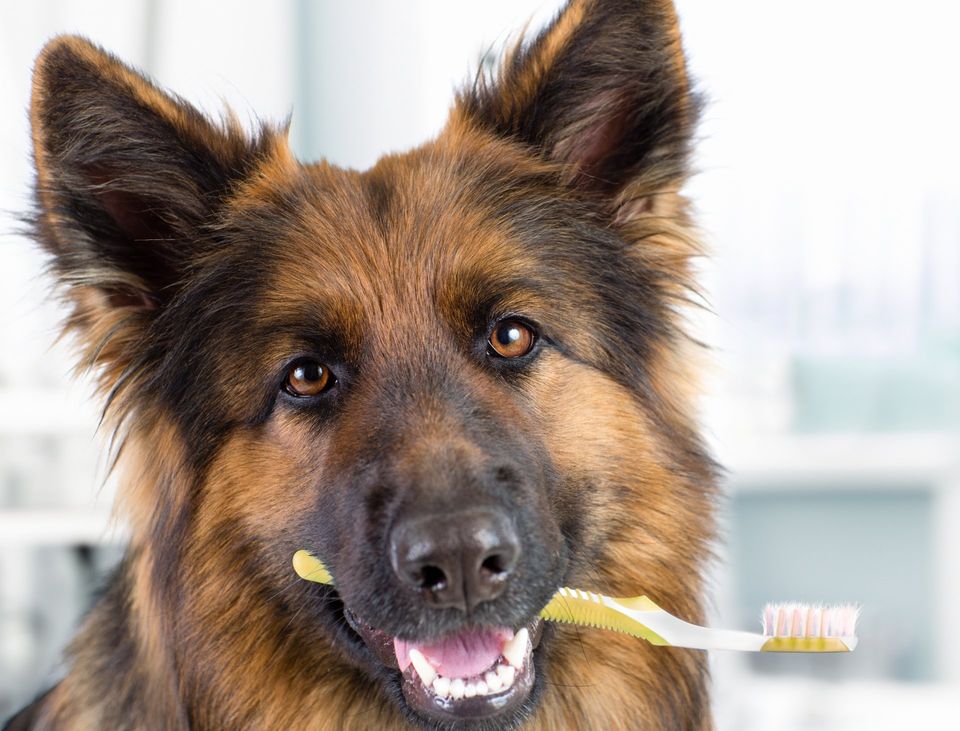LOOKING AFTER YOUR DOG'S TEETH
Fish4Dogs | Dog Training Tips & Advice • January 16, 2021
LOOKING AFTER YOUR DOG'S TEETH

Gum disease occurs five times more often in dogs than in people, this is down to a lack of brushing and the fact that dogs’ mouths are more alkaline which promotes the formation of plaque.
CAUSES OF GUM DISEASE IN DOGS
The most common cause of gum disease in dogs is bacteria. When you dog eats, the food, his saliva and bacteria all combine to form plaque, which coats your dog’s teeth. The good news is that plaque is soft and so more easily removed by brushing or chewing.
The body’s immune system tries to fight the bacteria in the plaque and the result is red, inflamed gums and if left for too long it can harden and become tartar. If tartar is left to build up, it can lead to gingivitis which if left untreated can cause periodontitis.
Periodontitis in dogs can bring about abscess formation, loss of teeth, and severe infections; at their worst, these infections can enter the blood stream and cause problems in the heart, lungs and kidneys.
SYMPTOMS OF GUM DISEASE IN DOGS
Unfortunately, if your dog is suffering with gum disease it isn’t always easy to spot during the early stages and they can be good at covering up the signs.
If you do notice any of the following symptoms (and they are unusual for your dog), ensure you see your vet straight away:
- Difficulty picking up food
- Bleeding or red gums,
- Blood in saliva, water bowl or on chew toys
- Strange noises when eating or yawning
- Dribbling
- Loss of teeth
- Bad breath
PREVENTING GUM DISEASE
There are a few main ways to prevent gum disease in your dog.
BRUSH YOUR DOG’S TEETH
You brush your teeth every day, why wouldn’t you brush theirs? Regularly brushing your dog’s teeth with a dog-friendly brush and toothpaste is an effective way of removing plaque and keeping the gums nice and healthy.
REGULAR CHECK-UPS
Oral exams and cleanings at the vets can help catch any early warning signs before they become problematic.
CHEWING
A great way to promote good dental health in your dog is to use this innate impulse to chew. A lot of treats that are labelled as dental treats are full of added sugars and salt which isn’t so good for your dog.
Read the full article from Fish4Dogs at https://www.fish4dogs.com/blog/post/looking-after-your-dogs-teeth


